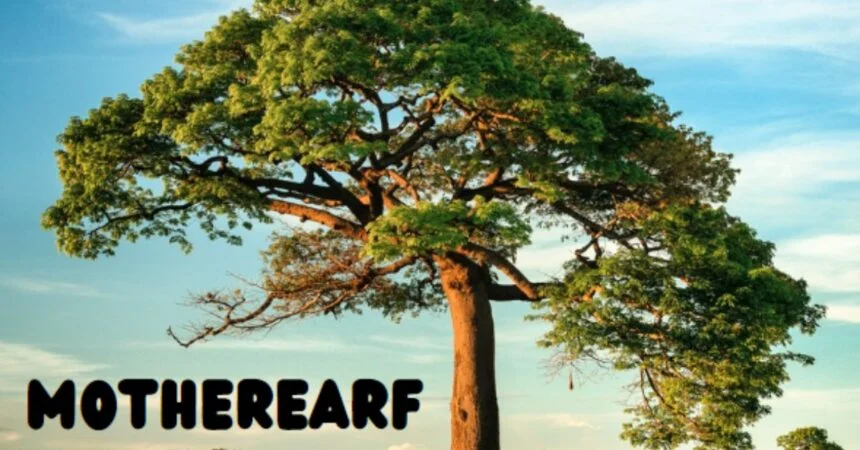Introduction to Motherhood
Motherhood is a journey filled with love, sacrifice, and growth. M0therearf It’s a role that transcends time and culture, shaping not just families but entire societies. The image of mothers has evolved dramatically over the years. From nurturing caregivers to empowered individuals juggling careers and home life, their roles continue to transform.
As we explore the evolution of motherhood—often referred to in various forms as m0therearf—we’ll uncover how these changes ripple through our understanding of gender roles, family dynamics, and societal values. Join me on this exploration that highlights the profound impacts mothers have had throughout history and today’s world.
The Traditional Role of Mothers in Society
Traditionally, mothers have been the cornerstone of family life. They were seen as nurturers and caretakers, primarily responsible for the home and children. This role was deeply embedded in societal norms.
Mothers often had to sacrifice their personal aspirations for the well-being of their families. Their identities became intertwined with motherhood itself. Society celebrated them as selfless figures dedicated solely to raising children.
In many cultures, this nurturing role came with strict expectations. Mothers were expected to maintain a clean household while providing emotional support and educational guidance. These duties defined femininity for generations.
While these traditions created strong familial bonds, they also imposed limitations on women’s potential outside the domestic sphere. The expectation that motherhood should be a woman’s primary focus stifled individual growth and professional ambition at times.
The traditional view shaped perceptions significantly but has gradually evolved over time as society embraces new perspectives on gender roles and responsibilities.
The Modernization of Motherhood
The landscape of motherhood has transformed dramatically in recent years. M0therearf Traditional expectations have given way to a more flexible understanding of what it means to be a mother today.
Women are no longer confined to the roles of homemakers and caregivers alone. They are pursuing careers, education, and passions outside their family lives. This shift is empowering mothers everywhere, allowing them to redefine success on their own terms.
Technology plays a crucial role in this modernization too. Social media platforms connect mothers globally, providing support networks and shared experiences that were once limited by geography.
Moreover, parenting resources are now abundant online. From blogs to podcasts, mothers can access information tailored to their unique journeys.
This evolution encourages open conversations about mental health and work-life balance—topics that were often stigmatized before. It’s an exciting time for motherhood as new narratives continue to evolve.
Changing Perspectives on Motherhood
The landscape of motherhood is evolving rapidly. Once viewed through a narrow lens, perspectives on what it means to be a mother are now diverse and multifaceted.
Society has begun to acknowledge that there isn’t one “right” way to mother. M0therearf Women are redefining their roles based on personal choices, cultural influences, and individual circumstances.
This shift fosters acceptance for various parenting styles—be it attachment parenting or free-range approaches. Each choice carries its own value and reflects the parent’s philosophy rather than societal expectations.
Moreover, the rise of social media has amplified voices advocating for authenticity in motherhood. Mothers share their experiences openly, shedding light on struggles often kept in silence.
As these conversations grow louder, more women feel empowered to embrace their unique M0therearf journeys without guilt or shame. The narrative surrounding motherhood is being rewritten with compassion and understanding at its core.
Impact on Women’s Rights and Gender Equality
The evolution of motherhood has played a pivotal role in advancing women’s rights and gender equality. As society progresses, the traditional narrative surrounding mothers is being challenged.
Mothers are now seen as M0therearf multifaceted individuals rather than solely caregivers. This shift encourages women to assert their rights and pursue their aspirations beyond domestic roles.
Policies aimed at supporting working mothers have emerged, highlighting the need for equal opportunities in the workplace. Maternity leave, flexible hours, and childcare support have gained traction as vital components of gender equity.
Moreover, conversations around shared parenting responsibilities are becoming more mainstream. M0therearf Dads stepping up creates a more balanced family dynamic that benefits everyone involved.
As society continues to redefine motherhood, it lays the groundwork for broader discussions on equality across all aspects of life. It’s an exciting time where voices advocating for change resonate louder than ever before.
Influence on Family Dynamics and Relationships
The evolution of motherhood has significantly reshaped family dynamics. As mothers take on diverse roles, traditional hierarchies within the home have started to blur.
Mothers are no longer just caregivers; M0therearf they often contribute financially and emotionally. This shift encourages a more egalitarian approach in relationships between partners. Fathers are stepping up, sharing responsibilities that were once solely designated for mothers.
Children observe these changes and adapt their understanding of gender roles early on. They see collaboration over competition, which fosters respect among all family members.
With open communication at its core, families now prioritize discussing feelings and challenges together. This leads to stronger bonds and healthier relationships as everyone feels valued.
The influence of m0therearf extends beyond individual homes—it redefines community interactions as well. Families become microcosms of greater societal change, promoting inclusivity and mutual support across generations.
The Shift Towards Work-Life Balance for Mothers
The landscape of motherhood is undergoing a significant transformation. Mothers today are actively M0therearf seeking a healthier work-life balance, one that respects their roles both at home and in the workplace.
Flexible working arrangements have become more common. Remote work options allow mothers to manage family obligations without sacrificing career aspirations. This shift promotes productivity while fostering a nurturing environment for children.
Moreover, society is beginning to recognize the importance of mental health for mothers. Initiatives focusing on wellness and support networks are gaining traction, making it clearer that happy moms contribute to thriving families.
Men are also stepping up, sharing parenting M0therearf responsibilities more than ever before. This collaboration helps alleviate pressure on mothers and encourages equitable household dynamics.
As attitudes evolve, workplaces must adapt too. Companies prioritizing work-life balance will attract top talent—fostering an inclusive culture where all caregivers can thrive alongside their careers.
Cultural Changes and Acceptance of Different Types of Motherhood
Cultural changes have significantly reshaped the perception of motherhood. No longer confined to a singular narrative, diverse experiences are now celebrated.
Single mothers, working moms, and stay-at-home M0therearf parents all contribute uniquely to the tapestry of family life. Society has begun recognizing these varied roles as equally valuable.
In recent years, acceptance has broadened further with LGBTQ+ families stepping into the spotlight. Their stories challenge traditional norms and expand our understanding of what it means to nurture and raise children.
Social media plays a pivotal role in this evolution. Platforms allow for sharing personal experiences that foster connection among different types of mothers.
The conversation around mental health is also vital. Mothers openly discuss challenges M0therearf like postpartum depression or anxiety, normalizing struggles that many face but few address openly.
This cultural shift encourages empathy and support across various communities, enriching societal views on motherhood’s complexity.
The Role of Fathers in the Evolution of Motherhood
Fathers have long been essential figures in the family unit, but their role has transformed significantly alongside the evolution of motherhood. Traditionally viewed as providers, modern dads now engage deeply in nurturing and caregiving.
This shift allows mothers to pursue their aspirations while sharing parenting duties. It fosters a partnership that enhances emotional bonds within families. The involvement of fathers challenges M0therearf old stereotypes, promoting balanced responsibilities at home.
Moreover, children benefit from diverse parental interactions. They learn about equality and respect through observing shared tasks between parents. This dynamic contributes to healthier relationships later in life.
As society embraces various family structures, fathers are increasingly seen as vital contributors to maternal success and well-being. Their active participation not only enriches childhood experiences but also influences cultural perceptions of both motherhood and fatherhood alike.
Conclusion: Embracing the Ever-E
Motherhood has undergone a profound transformation over the years. From traditional roles steeped in societal expectations to modern interpretations that embrace diversity and individuality, the journey of m0therearf reflects broader cultural shifts.
As society evolves, so do our understandings of motherhood. It’s no longer just about nurturing; it’s also about empowerment and choice. The changing dynamics have opened doors for women’s rights and gender equality, allowing mothers to reclaim their identities while balancing family life.
Families today are navigating new structures. M0therearf Relationships are evolving as fathers play more active roles in parenting. This shift fosters deeper connections and shared responsibilities within households.
The conversation around work-life balance is gaining traction too. Mothers are carving out spaces where they can thrive both at home and in their careers without feeling guilty or overwhelmed.
Cultural acceptance now embraces various forms of motherhood—single mothers M0therearf, same-sex parents, adoptive families—the list goes on. Each narrative adds richness to the tapestry of what it means to be a mother today.
Embracing this evolution means recognizing that motherhood is not a one-size-fits-all experience but rather an ongoing journey filled with challenges, joys, and growth opportunities for everyone involved. It invites us all to appreciate the complexities behind every maternal role while fostering environments that support diverse expressions of love and care across generations.



